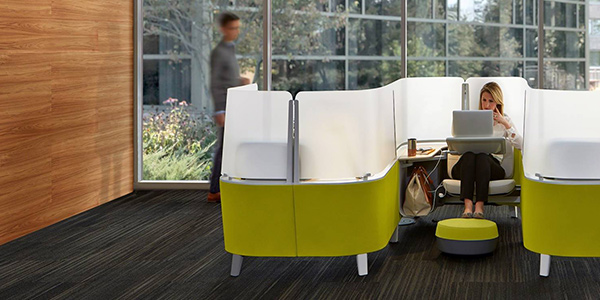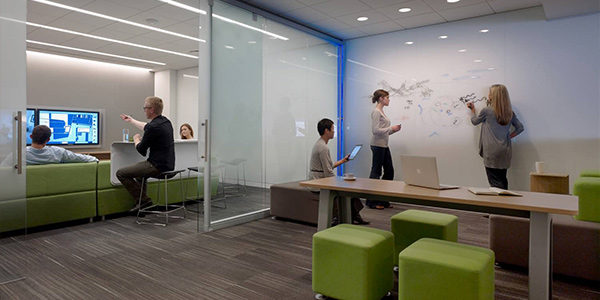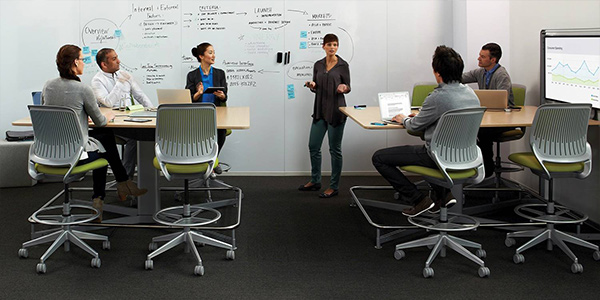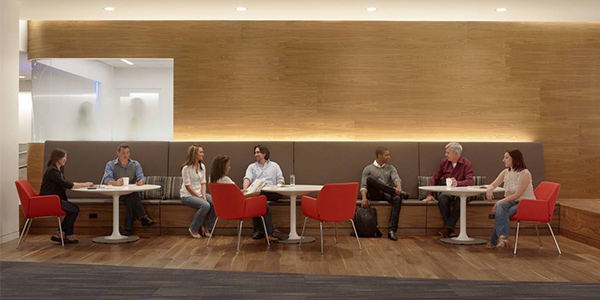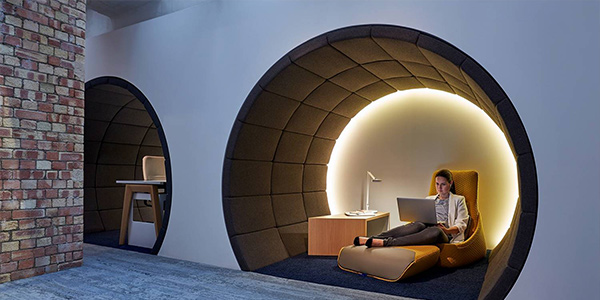Office privacy affects us in more ways than ever before. From being interrupted almost every 11 minutes by digital and human distractions to being overloaded by information or stimuli in an open plan office, the workplace can seem like a difficult place actually do work. But it doesn’t have to be!
There are distinct types of work people do throughout each day. Because these different work modes require different environments, providing an ecosystem of collaborative and focus spaces for people to work in can not only lead to more engaged employees but also improve productivity. The importance is a direct result of being able to balance interaction with colleagues and doing head’s down individual work.
WORK MODES + OFFICE PRIVACY
1. Focusing | Everybody needs uninterrupted time to concentrate and attend to specific tasks such as thinking, studying, contemplating, strategizing and processing. This includes other “head down” work that’s best performed in your own mental zone. Increasingly designers are building in Quiet Spaces and dedicated focus/respite areas within an open plan environment.
2. Collaborating | Fundamentally, collaboration is about working with one or more people to achieve a goal, such as collectively creating content, brainstorming, etc. Ideally, all perspectives are brought together to leverage a group’s shared mind. Informal collaborative furniture such as media:scape or Campfire lounges provide solutions for you to gather and share ideas.
3. Learning | Learning is about building knowledge. Whether in a classroom or a conversation with peers, learning happens best by doing and building on what you already know. Learning is accelerated and becomes part of organizational culture more quickly when thinking is made visible to others. Providing furniture that is flexible, interactive and multi-functional, like the Node chair, can help create impromptu environments that foster learning.
4. Socializing | For knowledge to be fully internalized and useful, it needs to be socialized. You learn and build trust when you socialize and work with others in formal and informal ways. Combining trust with your organization’s intellectual assets creates the necessary ingredients for innovation. Collaborative shared spaces give you informal opportunities to share knowledge and socialize.
5. Rejuvenating | In today’s workplace, it’s important for you to make time for your brain to decompress. Whether that means socializing in the WorkCafé, meditating for 15 minutes in a private enclave, or taking a refreshing walk around the block, it’s important to find ways to refresh your mind.



